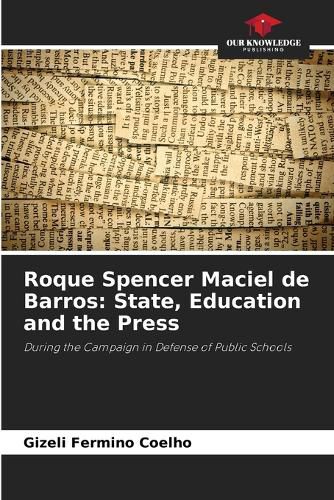Readings Newsletter
Become a Readings Member to make your shopping experience even easier.
Sign in or sign up for free!
You’re not far away from qualifying for FREE standard shipping within Australia
You’ve qualified for FREE standard shipping within Australia
The cart is loading…






This research analyzes the role that Roque Spencer Maciel de Barros played through the press in defense of democratic schools during the Campaign in Defense of Public Schools, an important civil movement that was unleashed during the final stages of the first National Education Guidelines and Bases Law (Law 4.024/1961) - 1959-1961. In Brazil, the period between the end of the 1950s and the beginning of the 1960s was marked by political, social, economic and cultural effervescence, among which were intense discussions about the importance of education for the development of society, a context that led Roque Spencer Maciel de Barros to debate, through the press, the need to build an elementary education system entirely offered and supervised by the State, which would be able to train qualified labor to meet the needs of the job market and contribute to the process of social and economic development.
$9.00 standard shipping within Australia
FREE standard shipping within Australia for orders over $100.00
Express & International shipping calculated at checkout
This research analyzes the role that Roque Spencer Maciel de Barros played through the press in defense of democratic schools during the Campaign in Defense of Public Schools, an important civil movement that was unleashed during the final stages of the first National Education Guidelines and Bases Law (Law 4.024/1961) - 1959-1961. In Brazil, the period between the end of the 1950s and the beginning of the 1960s was marked by political, social, economic and cultural effervescence, among which were intense discussions about the importance of education for the development of society, a context that led Roque Spencer Maciel de Barros to debate, through the press, the need to build an elementary education system entirely offered and supervised by the State, which would be able to train qualified labor to meet the needs of the job market and contribute to the process of social and economic development.